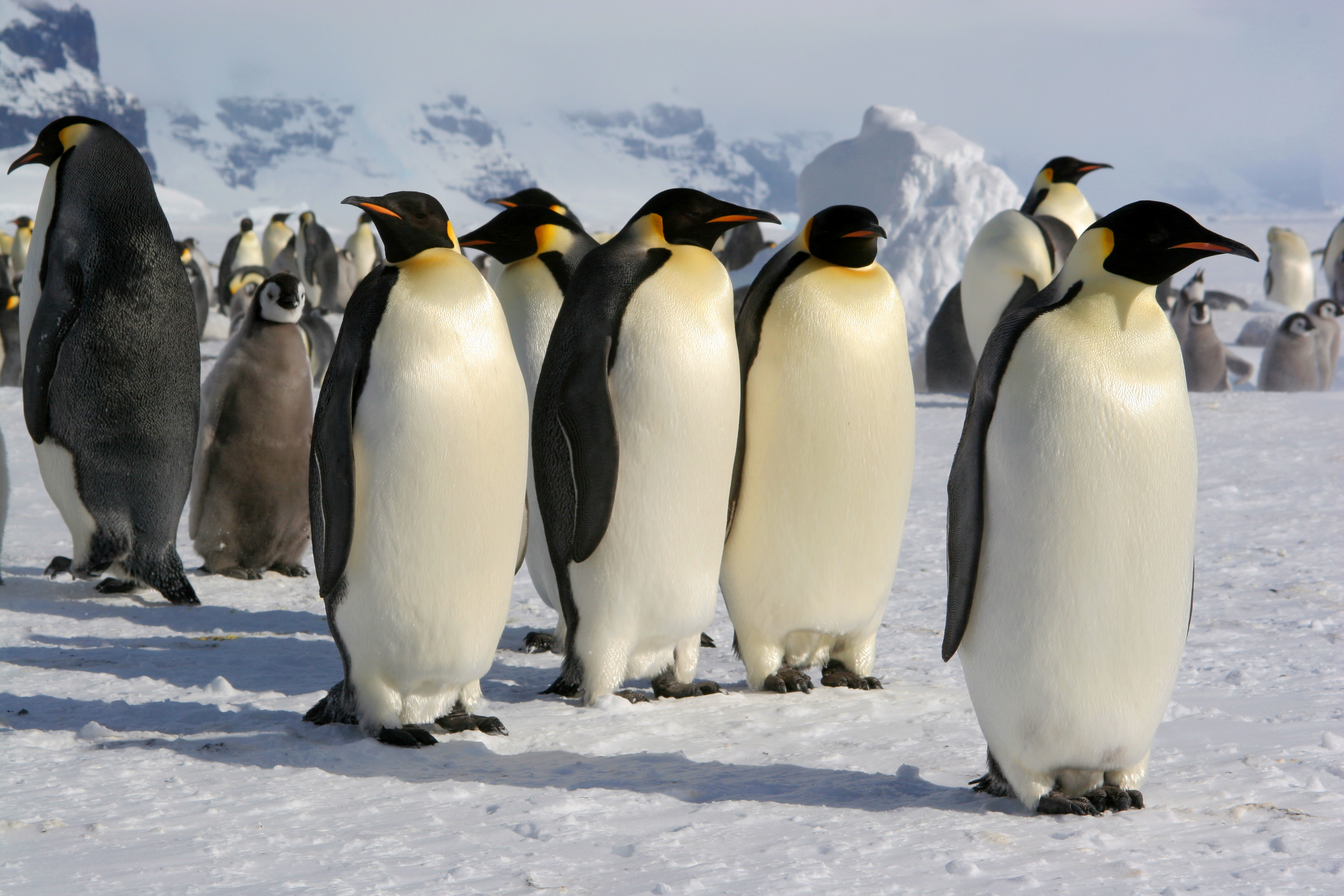Scientists discover 11 new penguin colonies in Antarctica. But it's not all good news.


A free daily email with the biggest news stories of the day – and the best features from TheWeek.com
You are now subscribed
Your newsletter sign-up was successful
There are a lot more emperor penguins in Antarctica than previously thought, a new study has found.
Using space technology to identify guano, or penguin poop stains on the sea ice, scientists discovered there are about 20 percent more emperor penguin colonies than were previously recorded. This represents a 5 to 10 percent increase in population, bringing the total to just above half a million.
The study, published in Remote Sensing in Ecology and Conservation, relied on satellite imagery from the European Space Agency's Copernicus Mission's Sentinel2 sensor.
The Week
Escape your echo chamber. Get the facts behind the news, plus analysis from multiple perspectives.

Sign up for The Week's Free Newsletters
From our morning news briefing to a weekly Good News Newsletter, get the best of The Week delivered directly to your inbox.
From our morning news briefing to a weekly Good News Newsletter, get the best of The Week delivered directly to your inbox.
Many of the newly discovered colonies are breeding offshore, a surprising new behavior. But these locations aren't ideal with the way Earth's climate is shifting. They are in "areas likely to be highly vulnerable under business‐as‐usual greenhouse gas emissions scenarios," the study reports.
Phil Trathan, Head of Conservation Biology at British Antarctic Survey, and one of the study's authors, notes that birds in offshore areas are likely to be "canaries in the coalmine," for climate change, and will need to be monitored carefully.
The study concludes that climate change is likely to affect the emperor penguins, and the newly discovered colonies are projected to become extinct or quasi‐extinct by the end of this century. "Our findings therefore suggest the possibility of an even greater proportion of the global population will be vulnerable to climate change, than previously considered."
A free daily email with the biggest news stories of the day – and the best features from TheWeek.com
Taylor Watson is audience engagement editor for TheWeek.com and a former editorial assistant. She graduated from Syracuse University, with a major in magazine journalism and minors in food studies and nutrition. Taylor has previously written for Runner's World, Vice, and more.
-
 What are the best investments for beginners?
What are the best investments for beginners?The Explainer Stocks and ETFs and bonds, oh my
-
 What to know before filing your own taxes for the first time
What to know before filing your own taxes for the first timethe explainer Tackle this financial milestone with confidence
-
 The biggest box office flops of the 21st century
The biggest box office flops of the 21st centuryin depth Unnecessary remakes and turgid, expensive CGI-fests highlight this list of these most notorious box-office losers
-
 Blue Origin launches Mars probes in NASA debut
Blue Origin launches Mars probes in NASA debutSpeed Read The New Glenn rocket is carrying small twin spacecraft toward Mars as part of NASA’s Escapade mission
-
 Dinosaurs were thriving before asteroid, study finds
Dinosaurs were thriving before asteroid, study findsSpeed Read The dinosaurs would not have gone extinct if not for the asteroid
-
 SpaceX breaks Starship losing streak in 10th test
SpaceX breaks Starship losing streak in 10th testspeed read The Starship rocket's test flight was largely successful, deploying eight dummy satellites during its hour in space
-
 Rabbits with 'horns' sighted across Colorado
Rabbits with 'horns' sighted across Coloradospeed read These creatures are infected with the 'mostly harmless' Shope papilloma virus
-
 Lithium shows promise in Alzheimer's study
Lithium shows promise in Alzheimer's studySpeed Read Potential new treatments could use small amounts of the common metal
-
 Scientists discover cause of massive sea star die-off
Scientists discover cause of massive sea star die-offSpeed Read A bacteria related to cholera has been found responsible for the deaths of more than 5 billion sea stars
-
 'Thriving' ecosystem found 30,000 feet undersea
'Thriving' ecosystem found 30,000 feet underseaSpeed Read Researchers discovered communities of creatures living in frigid, pitch-black waters under high pressure
-
 New York plans first nuclear plant in 36 years
New York plans first nuclear plant in 36 yearsSpeed Read The plant, to be constructed somewhere in upstate New York, will produce enough energy to power a million homes
